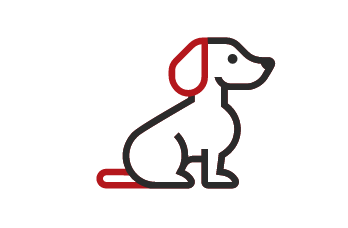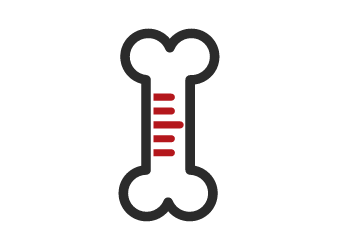|
The French Bulldog has enjoyed a long history as a companion dog. Created in England to be a miniature Bulldog, they accompanied English lacemakers to France, where they acquired their “Frenchie” moniker. Although this is a purebred dog breed, you may find them in shelters and rescues. Opt to adopt if you can! Besides being companions, they once served as excellent ratters, but today their job focuses on being fabulous family friends and show dogs. Even apartment dwellers and first-time pet parents will love this affectionate breed. We recommends with your small French Bulldog. You should also for your short-haired pup! See below for complete list of dog breed traits and facts about French Bulldogs! Breed Characteristics:Adapts Well To Apartment Living Contrary to popular belief, small size doesn't necessarily an apartment dog make. Plenty of small dogs are too high-energy and yappy for life in a high-rise. Being quiet, low energy, fairly calm indoors, and polite with the other residents are all good qualities in an apartment dog. And you can find an to give them a little more personal space in your apartment. Good For Novice Owners Some dogs are simply easier than others; they take to training better and are fairly easygoing. They're also resilient enough to bounce back from your mistakes or inconsistencies. Dogs who are highly sensitive, independent thinking, or assertive may be harder for a first-time dog parent to manage. You'll get your best match if you take your dog-owning experience into account as you choose your new pooch. If you're new to dog parenting, on how to train your dog! You may also want to consider adopting a senior dog, as they tend to be less demanding of your time and energy. You can keep your senior dog active well into old age by providing them with joint supplements to fight the symptoms of arthritis. Adding Glyde Mobility Chews to their routine can help their joints stay healthy. Sensitivity Level Some dogs will let a stern reprimand roll off their backs, while others take even a dirty look to heart. Low-sensitivity dogs, also called "easygoing," "tolerant," "resilient," and even "thick-skinned," can better handle a noisy, chaotic household, a louder or more assertive owner, and an inconsistent or variable routine. Do you have young kids, throw lots of dinner parties, play in a garage band, or lead a hectic life? Go with a low-sensitivity dog. Tolerates Being Alone Some breeds bond very closely with their family and are more prone to worry or even panic when left alone by their owner. An anxious dog can be very destructive--barking, whining, chewing, and otherwise causing mayhem. These breeds do best when a family member is home during the day or if you can take the dog to work. Tolerates Cold Weather Breeds with very short coats and little or no undercoat or body fat, such as Greyhounds, are vulnerable to the cold. Dogs with a low cold tolerance need to live inside in cool climates and should have a jacket or sweater for chilly walks. You can find a Tolerates Hot Weather Dogs with thick, double coats are more vulnerable to overheating. So are breeds with short noses, like Bulldogs or Pugs, since they can't pant as well to cool themselves off. If you want a heat-sensitive breed, your dog will need to stay indoors with you on warm or humid days, and you'll need to be extra cautious about exercising your dog in the heat. All Around FriendlinessAffectionate With Family Some breeds are independent and aloof, even if they've been raised by the same person since puppyhood; others bond closely to one person and are indifferent to everyone else; and some shower the whole family with affection. Breed isn't the only factor that goes into affection levels; dogs who were raised inside a home with people around feel more comfortable with humans and bond more easily. Treats can help the bonding process go more smoothly. Try giving your dog Glyde Mobility Chews to help them see you as a provider and to keep their joints healthy! Kid-Friendly Being gentle with children, sturdy enough to handle the heavy-handed pets and hugs they can dish out, and having a blasé attitude toward running, screaming children are all traits that make a kid-friendly dog. You may be surprised by who's on that list: Fierce-looking Boxers are considered good with children, as are American Staffordshire Terriers (which are considered Pit Bulls). Small, delicate, and potentially snappy dogs such as Chihuahuas aren't always so family-friendly. Dog Friendly Friendliness toward dogs and friendliness toward humans are two completely different things. Some dogs may attack or try to dominate other dogs, even if they're love-bugs with people; others would rather play than fight; and some will turn tail and run. Breed isn't the only factor. Dogs who lived with their littermates and mother until at least six to eight weeks of age and who spent lots of time playing with other dogs during puppyhood, are more likely to have good canine social skills. Friendly Toward Strangers Stranger-friendly dogs will greet guests with wagging tails and nuzzles; others are shy, indifferent, or even aggressive. However, no matter what the breed, a dog who was socialized and exposed to lots of different types, ages, sizes, and shapes of people as a puppy will respond better to strangers as an adult. Remember that even friendly dogs should stay on in public! Health And Grooming NeedsAmount Of Shedding If you're going to share your home with a dog, you'll need to deal with some level of dog hair on your clothes and in your house. However, shedding does vary greatly among the breeds. Some dogs shed year-round, some "blow" seasonally, some do both, and some shed hardly at all. If you're a neatnik, you'll need to either pick a low-shedding breed or relax your standards. To help keep your home a little cleaner, you can find Drooling Potential Drool-prone dogs may drape ropes of slobber on your arm and leave big, wet spots on your clothes when they come over to say hello. If you've got a laid-back attitude toward slobber, fine; but if you're a neatnik, you may want to choose a dog who rates low in the drool department. Easy To Groom Some breeds are brush-and-go dogs; others require regular bathing, clipping, and other grooming just to stay clean and healthy. Consider whether you have the time and patience for a dog who needs a lot of grooming, or the money to pay someone else to do it. General Health Due to poor breeding practices, some breeds are prone to certain genetic health problems, such as hip dysplasia. This doesn't mean that every dog of that breed will develop those diseases; it just means that they're at an increased risk. If you're adopting a puppy, it's a good idea to find out which genetic illnesses are common to the breed you're interested in. You may also want to ask if your shelter or rescue has information about the physical health of your potential pup's parents and other relatives. Many health problems are related to digestion and issues in the gut. Adding Bernie's Perfect Poop digestion support treats to your dog's routine can help your pet feel better and improve their overall health! Potential For Weight Gain Some breeds have hearty appetites and tend to put on weight easily. As in humans, being overweight can cause health problems in dogs. If you pick a breed that's prone to packing on pounds, you'll need to limit treats, make sure they get enough exercise, and measure out their daily food servings into regular meals rather than leaving food out all the time. Ask your vet about your dog's diet and what they recommend for feeding your pooch to keep them at a healthy weight. If your dog has tummy troubles, adding Bernie's Perfect Poop digestion support treats to their diet can help your dog feel better and improve their overall health! Size Dogs come in all sizes, from the world's smallest pooch, the Chihuahua, to the towering Great Dane, how much space a dog takes up is a key factor in deciding if they're compatible with you and your living space. Large dog breeds might seem overpowering and intimidating, but some of them are incredibly sweet! Take a look and find the right sized dog for you! Many larger dogs are prone to joint issues. Adding Glyde Mobility Chews to their routine can help their joints stay healthy. TrainabilityEasy To Train Easy-to-train dogs are more adept at forming an association between a prompt (such as the word "sit"), an action (sitting), and a consequence (getting a treat) very quickly. Other dogs need more time, patience, and repetition during training. Many breeds are intelligent but approach training with a "What's in it for me?" attitude, in which case you'll need to use rewards and games to teach them to want to comply with your requests. Here are some great treats that can actually improve your dog's digestion to get you started! Intelligence Dogs who were bred for jobs that require decision making, intelligence, and concentration, such as herding livestock, need to exercise their brains, just as dogs who were bred to run all day need to exercise their bodies. If they don't get the mental stimulation they need, they'll make their own work--usually with projects you won't like, such as digging and chewing. Obedience training and interactive dog toys are good ways to give a dog a brain workout, as are dog sports and careers, such as agility and search and rescue. Potential For Mouthiness Common in most breeds during puppyhood and in Retriever breeds at all ages, mouthiness means a tendency to nip, chew, and play-bite (a soft, fairly painless bite that doesn't puncture the skin). Mouthy dogs are more likely to use their mouths to hold or "herd" their human family members, and they need training to learn that it's fine to gnaw on chew toys, but not on people. Mouthy breeds tend to really enjoy a game of fetch, as well as a good chew on a toy that's been stuffed with kibble and treats. You Might Also Like1) Top-rated supplies for French Bulldog puppy 2) Best pet insurance plan for my French Bulldog 3) Best soft chew multivitamin for breed 4) Best food for French Bulldog puppy 5) Find French Bulldog puppy breeders near me 6) How can I crate train my young French Bulldog puppy? Vital Stats:
0 Comments
Your comment will be posted after it is approved.
Leave a Reply. |
AuthorWrite something about yourself. No need to be fancy, just an overview. ArchivesCategories |




 RSS Feed
RSS Feed